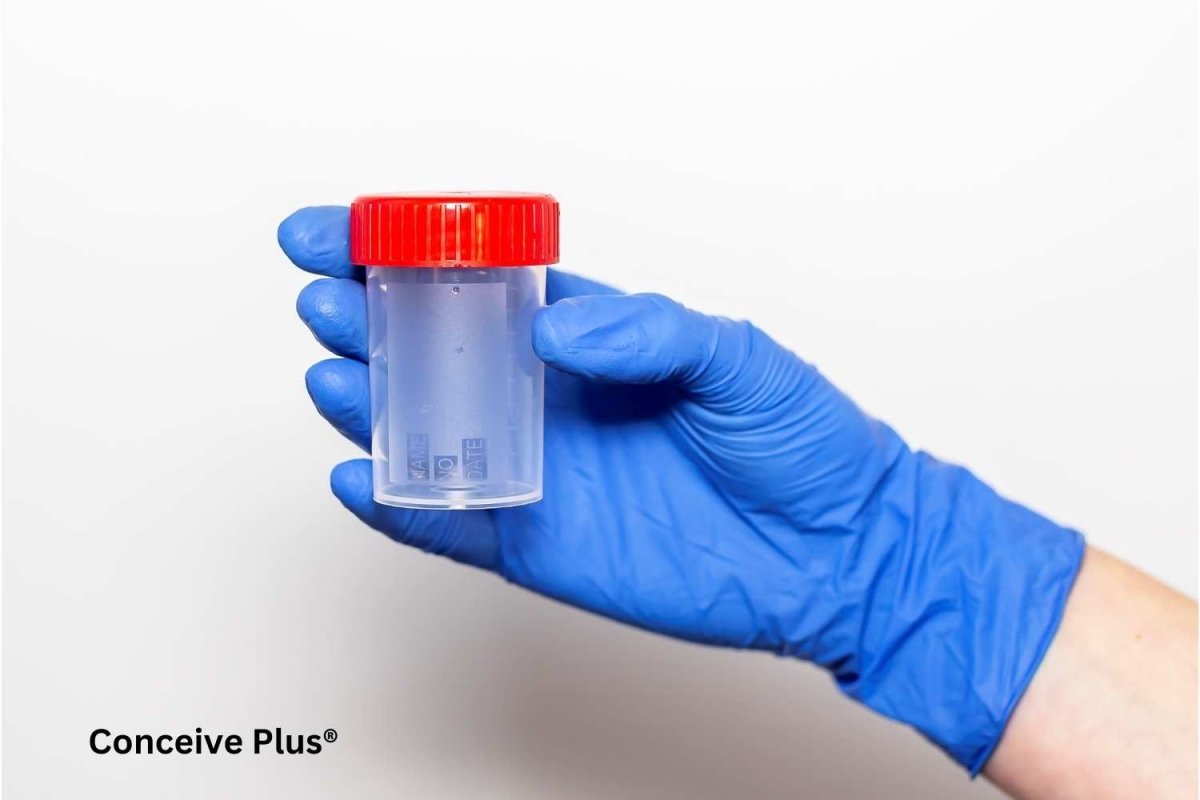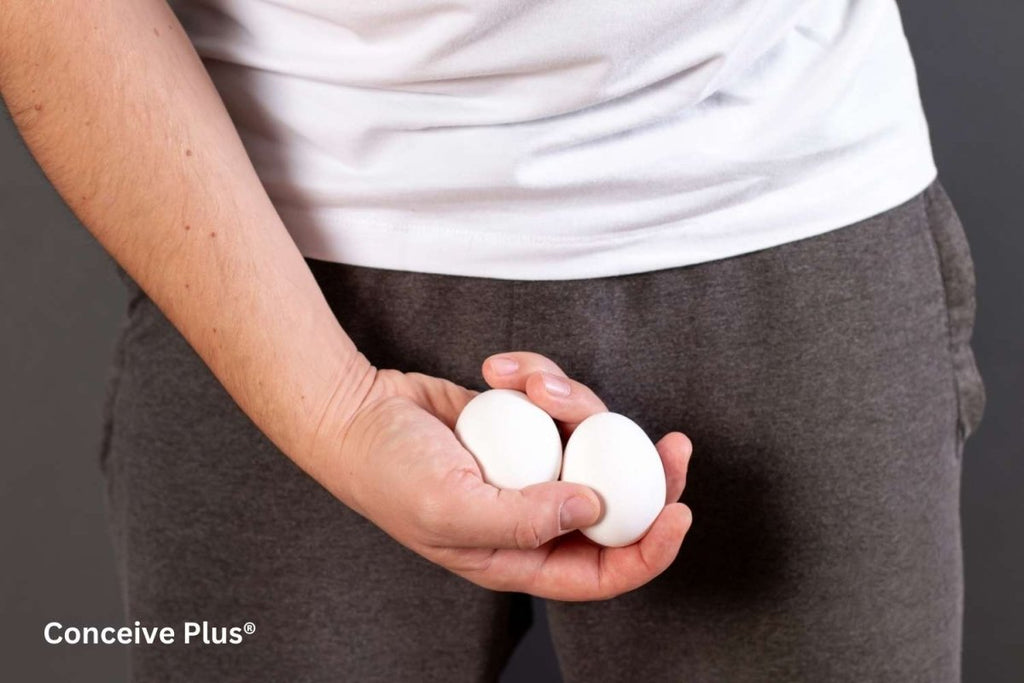Can You Run Out of Cum or Sperm and What Are the Causes

So, can you run out of cum? It's a question a lot of guys probably think about at some point. The short answer is no, not really. But it's a bit more complicated than that. Your body is constantly making sperm. So even though it might feel like you're running low after a lot of, let's say, "activity," it's not like you can completely run out.
Can You Run Out of Sperm?
Now, can you run out of sperm? Technically, you won't run out for good. Your body's always producing sperm—millions of them every single day. But, here's the thing: If you ejaculate a lot in a short amount of time, your sperm count in each round might get lower. Basically, your body needs some time to build it back up [1]. To understand more about what impacts semen production and whether it’s possible to deplete it entirely, read about semen storage and the causes behind fluctuations in semen volume.
Top Tip: Your sperm count can drop temporarily if you're really going at it, but your body's got your back—it'll keep making more.
What Happens If You Run Out of Sperm Temporarily?
So, if you run out of sperm after a few intense rounds, what happens? The number of sperm in your ejaculate might be lower, but you won't run out completely. It just takes time for your body to get back to its usual count. It's like needing a quick break. And let's not forget, taking care of your health helps. Things like zinc and selenium are big players when it comes to sperm health. Zinc keeps those testosterone levels up, and selenium is like a shield, protecting sperm from damage [2].
Top Tip: Give your body some time to recharge between sessions, and make sure to eat foods high in zinc and selenium to keep everything working right.
Can You Run Out of Semen?
What about can you run out of seman? That's another one people ask a lot. Semen is the fluid that carries your sperm, and just like sperm, it's always being produced. After a lot of ejaculation, you might notice there's less semen, but don't worry, your body's making more all the time [3].
Things like L-arginine (it's in some fertility supplements) help improve blood flow, which helps with semen production. So, even though it might seem like your body's slowing down, it's really just taking a breather.
Top Tip: Drink lots of water and eat a balanced diet to help maintain healthy semen production.
Is It Possible to Run Out of Sperm?
Let's get into this. Is it possible to run out of sperm? No, not really. But there's a catch. Your sperm count might drop temporarily if you ejaculate a lot, but your body's never going to completely stop making it. As you get older, your sperm count and quality can drop, especially after 40, but you'll still produce sperm. So, even though it slows down, it never fully stops [4].
For the long game, keeping fit, eating right, and maybe even taking supplements with things like CoQ10 or selenium can help keep your sperm healthy.
Top Tip: Healthy habits—like exercising and eating foods rich in antioxidants—can help maintain sperm health, especially as you age. For additional support in maintaining sperm health, certain fertility supplements provide key nutrients that contribute to overall sperm quality and reproductive health.
Can I Run Out of Sperm?
Okay, can I run out of sperm? This is something a lot of guys wonder about. The answer's no, you can't permanently run out. You're always producing sperm, even if you're ejaculating frequently. But if you're not eating right, stressed out, or doing things that aren't great for your health, like smoking, it can mess with your sperm count. That's where supplements with things like vitamin C or CoQ10 can really make a difference. These help keep sperm healthy and ready to do their thing [5].
Top Tip: If you're trying to boost sperm health, make sure you're getting enough vitamins and antioxidants in your diet.
Can You Ever Run Out of Sperm?
Can you ever run out of sperm? Again, nope. You're always making sperm. Sure, things slow down as you get older, but you're never going to fully stop producing it. Even guys in their 70s and 80s can father kids, though it gets a bit harder (pun intended). If you're worried about your sperm quality as you age, adding supplements with antioxidants like CoQ10 can help keep those little swimmers in good shape [6].
Top Tip: Don't worry too much about age. Just stay healthy, and your body will keep producing sperm.
Can a Man Run Out of Cum?
Lastly, can a man run out of cum? Or can u run out of cum? Again, no, not in the long run. While the amount of semen might go down after a few rounds of ejaculation, your body will always make more. It might slow down, but you'll never run out completely. So, the answer to is it possible to run out of cum is also no [7].
Top Tip: Just give your body a little rest between sessions if you want to keep things flowing normally.
The Bottom Line
So, can you run out of cum or can u run out of sperm? The answer is no. You might experience lower sperm count or semen volume after frequent ejaculation, but your body's always going to keep producing both. Keeping a healthy lifestyle, eating right, and making sure you're getting key nutrients like zinc, CoQ10, and selenium can go a long way in maintaining fertility and sperm health.
FAQs
Can you run out of sperm permanently?
No, your body constantly makes new sperm. You won't run out permanently.
How does frequent ejaculation affect sperm?
Frequent ejaculation may temporarily lower sperm count, but your body will keep making more.
Can sperm production decrease with age?
Yes, sperm count and quality may drop after 40, but men keep producing sperm throughout their lives.
How long does it take for sperm to regenerate?
It takes about 64-74 days for sperm to fully regenerate, but production is continuous.
Can lifestyle changes improve sperm health?
Yes, eating right, exercising, and taking supplements with key nutrients can improve sperm health and increase fertility.
Citations
- Johnson L, Petty CS, Neaves WB. A new approach to quantification of spermatogenesis and its application to germinal cell attrition during human spermiogenesis. Biol Reprod. Available at: https://pubmed.ncbi.nlm.nih.gov/6793101/
- Kumar N, Singh AK. Trends of male factor infertility, an important cause of infertility: A review of literature. J Hum Reprod Sci. Available at: https://www.ncbi.nlm.nih.gov/pmc/articles/PMC4691969/
- Azenabor A, Ekun AO, Akinloye O. Impact of Inflammation on Male Reproductive Tract. J Reprod Infertil. Available at: https://pubmed.ncbi.nlm.nih.gov/26913230/
- Oduwole OO, Huhtaniemi IT, Misrahi M. The Roles of Luteinizing Hormone, Follicle-Stimulating Hormone and Testosterone in Spermatogenesis and Folliculogenesis Revisited. Int J Mol Sci. Available at: https://www.ncbi.nlm.nih.gov/pmc/articles/PMC8658012/
- Showell MG, Brown J, Yazdani A, Stankiewicz MT, Hart RJ. Antioxidants for male subfertility. Cochrane Database Syst Rev. Available at: https://pubmed.ncbi.nlm.nih.gov/21249690/
- European Association of Urology Guidelines on Male Sexual and Reproductive Health: 2021 Update on Male Infertility Minhas, Suks et al. European Urology, Available at: https://www.europeanurology.com/article/S0302-2838(21)01982-5/abstract
- Meinhardt A. Andrology 3rd edition—E. Nieschlag, H.M. Behre, S. Nieschlag (eds). Asian J Androl. Available at: https://www.ncbi.nlm.nih.gov/pmc/articles/PMC3739271/
Buy sperm count supplements for the best products to increase sperm count for men. Shop natural sperm count enhancers and quality vitamins to improve sperm count. Conceive Plus Men's Fertility products are the best products to increase sperm count and sperm volume - trusted by Doctors and fertility experts since 2008!













